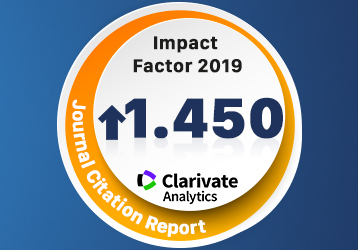Volume 110, Nº 5, May 2018
DOI: http://www.dx.doi.org/10.5935/abc.20180072
ORIGINAL ARTICLE
Prevalence and Factors Associated with Metabolic Syndrome among Brazilian Adult Population: National Health Survey – 2013
Elyssia Karine Nunes Mendonça Ramires
Risia Cristina Egito de Menezes
Giovana Longo-Silva
Taíse Gama dos Santos
Patrícia de Menezes Marinho
Jonas Augusto Cardoso da Silveira

Abstract
Background: In Brazil, population-based researches analyzing prevalence and factors associated with metabolic syndrome (MS), a recognized predictor of cardiovascular diseases (CVD), and an important cause of disability and death in the country are scarce.
Objective: To evaluate prevalence of MS and its associated factors in Brazilian population.
Methods: Secondary analysis of the 2013 National Health Survey, a cross-sectional survey with national representativeness of Brazilian adult population (n = 59,402). MS was the outcome variable, defined from harmonization of cardiology international consensus as load ≥ 3 of the following components: self-reported diabetes and hypercholesterolemia, high blood pressure and high waist circumference. Analysis were stratified by sex and prevalence ratios, with their respective 99% confidence intervals (PR [CI 99%]) calculated by simple and multiple Poisson regression models.
Results: MS prevalence was 8.9%, being significantly higher among women compared to men; in general, this pattern was maintained in relation to exposure variables studied. Additionally, less than 25% of population did not present any MS component. In final multiple models, sociodemographic, behavioral and comorbidity variables were associated with MS, however, while low schooling (1.46 [1.23-1.74], cerebrovascular accident (1.36 [1], 00] (1.28 [1.03-1.62]) were associated among women, chronic renal failure (1.85 [2.23-2.76]) was associated exclusively among men.
Conclusion: We identified MS high prevalence in Brazilian population; on the other hand, factors associated with this condition were different depending on sex. (Arq Bras Cardiol. 2018; 110(5):455-466)
Keywords: Cardiovascular Diseases / mortality; Metabolic Syndrome / epidemiology; Epidemiology; Adult; Public Health Surveillance; Health Surveys.















